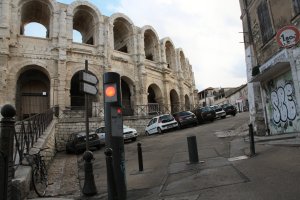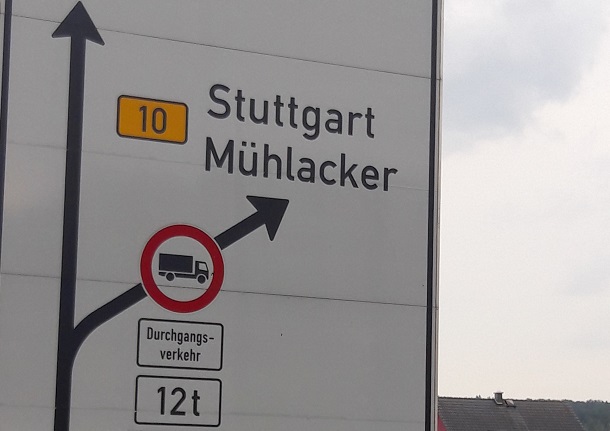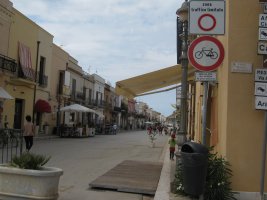


This page gives an overview of urban access regulations
Some cities and towns have regulations or restrictions for vehicles other than low emission zones or congestion charges. They might restrict vehicles going into all or part of their area to improve issues such as air quality, noise, congestion, quality of life, increasing cycling or walking or improving how people experience the city. For more on why cities implement such schemes, see here.
Other Access Regulation Schemes?
Why Access Regulations?
Types of Access Regulation
What are urban access regulations?
Some cities and towns have regulations or restrictions for vehicles going into all or part of their area to improve issues such as air quality, congestion or how people experience the city, see more below. This can be by for example:
- charging for access to road space (urban road tolls, red dots on our map)
- not allowing dirty vehicles to go into the city (low emission zones, green dots on our map)
- only allowing zero emission vehicles entry into an area (zero emission zones, purple dots on our map)
Or other Access Regulation Schemes. These might be:
- having restrictions, or tighter restrictions, including Low Emission Zones, lower speed limits, limited vehicle access, during episodes of high pollution (emergency pollution schemes, orange dots on our map)
- no vehicle access is allowed, with perhaps delivery windows at certain times of the day (pedestrian zones). On our map, these are annotated by blue dots.
- vehicles are only allowed with permits, which are given for certain vehicles or trips (limited traffic zones). On our map, these are annotated by blue dots.
- or by other entry restrictions or access regulations (other access regulation schemes, blue dots on our map). These are often Limited Traffic Zones, lorry through bans, pedestrian zones, superblocks and circulation plans.
See our blog article about UVARs that also helps explain what they are.
What do we have on our website?
In terms of other access regulations, our website provides all the information you need on the schemes that operate in the larger or more touristy cities. This information will not be comprehensive or cover every urban area. However, we cover as many cities and towns as possible.
We do not generally include pedestrian areas or parking schemes, but we are increasingly working to include the bigger ones. We are complete for the Italian camera enforced ZTLs, but not the non-camera enforced normal ZTLs - as most Italian towns and villages have these.
If you have information on schemes that we do not yet cover, This email address is being protected from spambots. You need JavaScript enabled to view it., and this will help us increase the number of schemes we have on our website.
You can search for cities under the list of Countries, the city search from the top of the page (under the menus), or with the map.
Why Access Regulation Schemes?
Many cities and towns struggle with the balance of congestion, ‘liveability’, air pollution, noise levels, accessibility, damage to historic buildings and other pressures of urban life. Many cities have levels of pollution that adversely affect health. Congested, polluted, noisy cities are not attractive for businesses or residents.
Air pollution is responsible for 310 000 premature deaths in Europe each yeari. This is more deaths than caused by road accidentsii. The human health damage from air pollution is estimated to cost the European economy between €427 and €790 billion per yeariii. For more information, see our why low emission zones page.
Congested, polluted, noisy cities are not attractive for businesses or residents. Congestion also has a significant impact on the economy, costing nearly €100 billion, or 1% of the EU's GDP, annuallyvi. The different types of Urban Access Regulations can reduce traffic and congestion in a city, and ensure that those that need to travel with a vehicle - for example deliveries - can travel rather than sitting in a traffic jam.
Traffic incidents caused 39000 fatalities in the EU in 2008. 23% of fatal accidents in built-up areas affected people under the age of 25. Less traffic and well planned streets in urban areas can lead to fewer accidents. vii
Attractiveness to Tourists, those visiting and bringing money into the cities do not want to see traffic jams or rows of tour buses. This is particularly the case for many Italian cities, with Zona a Traffico Limitato (ZTL)
Noise contributes to at least 10 000 cases of premature mortality each yearviii and noise from road and rail traffic is estimated to cost the EU €40 billion per yearix. Almost 90% of the health impact caused by noise exposure is associated with road traffic noisex.
Types of Access Regulation
There are many ways to try to tackle these issues, and regulating the vehicles or trips that access parts of the town is one. Access regulations can be by vehicle type (eg car or lorry), vehicle weight (eg over 3.5 tonnes), by type of trip (eg delivery), by driver (eg residents or access), or for all vehicles.
Generally Access Regulations balance the need of vehicles to access an area, with a reduction in the number of vehicles entering the area. For example, encourages commuters to travel by public transport, cycle or foot.
If you are driving a heavy duty vehicle, you will be aware that you are often not allowed to drive through many cities, towns or villages, and the major roads around the towns should be used with preference.
- The most simple type of Access Regulation is a pedestrian zone, which can very much improve the attractiveness of a tourist attraction or shopping centre. Our website does not generally include pedestrian zones, as they occur in almost every town. Those who need to enter to deliver to the shops have contact with the shops and so know about the scheme. However, some larger pedestrian zones are included under other Access Regulations.
- Limited Traffic Zones are comon in Italy, Spain and Portugal. They have access to the zone only with permits, which are issued to certain categories of vehicle and trip - such as residents, deliveries, public transport.
- Spatial Interventions can also be classified as UVARs. These are where the road or parking space is taken away and given to other uses, and so vehicles are regulated. These other uses include parks, outdoor dining, bus and cycle lanes, wider pavements, one-way streets.... Sometimes these are combined to schemes such as circulation plans (eg Gent, combined with an LTZ) or Superblocks (eg Barcelona).
- Parking Zones, either for residents or visitors, can also be classified as UVARs. Residents parking zones are where only residents or permitted visitors may park. Other limited parking zones can limit the time allowed to park, and set the cost per hour in different areas.
- Increasingly cities are implementing combined schemes, LTZs with LEZs, Congestion charges with LEZs, and where traffic is reduced, for example with an LTZ or congestion charge, this space can be transformed with Spatial Interventions into amenity space for the enjoyment of all.


